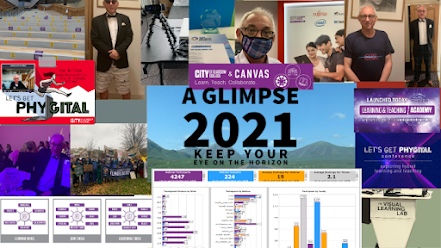I was asked to respond to a paper on the incidence of contract cheating. Here are some thoughts. It is an old chestnut. There will always be those who seek to cheat the system and ultimately themselves.
We know cheating is on the rise across education - but that is because we are identifying it with the safeguards we have in place. We are constantly providing further mitigation for a potential risk .
I am more comfortable that most forms of contract cheating - particularly from essay mills get picked up by Turnitin - the subtler a friend/parent wrote my assessment is the one that is much harder to mitigate against . The privileged cheats.
You can trick Turnitin - put an essay through auto translate a few times and then rewrite it - this could get you across the line - but you would need to be very careful about referencing and sources - as though your words would be different - they would stay the same. - but it is a lot more work than simply writing a paper. Though you may learn a lot in the process.
I think this all comes down to students making an assertion - as they do every time, they submit work to Turnitin that it's all their own work . In SQA land on portfolios we get teachers to sign off work too saying that they know work to be students own work - academic integrity is for staff and students to maintain.
Perhaps just a reminder that we use similarity detection software and tutors will ask about submitted work to ensure its integrity. I have a question; how empowered do staff feel about challenging the authenticity of a learner's work ? - we rarely get any staff members reporting this to LT team or asking us to investigate .
For students it's the black and white statement in the student code of conduct and disciplinary procedures, to effect, that cheating in assessments in any form is unacceptable and will result in disciplinary action including expulsion.
Does the College keep a record of issues , incidents ? I had access to this in other Colleges as Chair of Learning and Teaching Committee - we saw high level report on all disciplinary issues . Incidence of cheating was low 2003-2019 Anniesland , Clyde, and Kelvin Colleges - higher were disciplinary issues about student conduct in general - we tracked as part of equalities work.
I think in world we are in at moment - cheating could be impersonation and taking notes into a closed book assessment , whispering answer to a friend during a SOLAR multiple-choice assessment , or Whatsapping them - as our invigilation arrangements are perhaps a bit looser than normal due to circumstances.
Perhaps, a piece that makes sure that staff and students know and understand the assessment arrangements for any unit of learning and that these are conducted in a fair and accessible way .
I thought this among
many sites offering advice to students on the pitfalls of contract cheating was done well Turnitin offers advice too.In end it all comes down too , to the quality of the questions .
There can only be so many essays on things like "Discuss the theme in Romeo and Juliet" , " Explain and evaluate six different organisational types " etc - Where we can the system should offer cleverer and more valid assessments - it makes learning more stimulating and interesting too and that would lower the temptation of plagiarism and make life harder for essay mills.
I think Artificial Intelligence is about to bring the whole assessment house crashing down.











